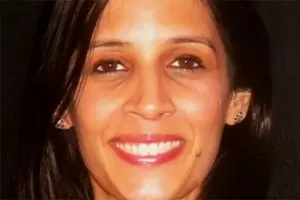Striving to alleviate poverty through microfinance for four lakh women

07-January-2011
Vol 2 | Issue 1
Networking with over 20000 self help groups that have over four lakh rural women members, Madura Microfinance, a social enterprise, offers the lowest lending rates in the country at less than 20% on an average (compared to the general microfinance rates of 28% to 40%). The company not only provides microfinance to the four lakh rural women but also provides them with a platform to build their business knowledge and attain awareness about market opportunities.
The organisation has been working with great determination to bring about socioeconomic transformation in rural areas.
 |
|
Total Transformation: Tara Thiagarajan is looking at ways to increase income of rural women multifold and feels marginal increase in income is negated in the face of faster global growth
|
At the helm of affairs is Tara Thiagarajan, chairperson and managing director, who uses her background in neuroscience to figure out whether cutting edge understanding and scientific thinking from complex systems can be used to understand why certain human ecosystems are successful and others are not.
When her father passed away suddenly, the responsibility of running his microfinance company fell on her. That was in 2004 when she was 32-years-old. Taking charge, she soon realised that there were a number of organisations providing finance and the challenge for her was to figure out how she could use her background in science to add value to her new role.
She decided to tackle her responsibility not from the point of view of finance but with a perspective on poverty. She found that though the original vision of the company was to alleviate poverty, the successes they saw did not mean anything when viewed against the global standard.
“When an entrepreneur has a marginal increase in income say from Rs 3000 to Rs 5000 it does not really translate into much profit when you consider the rate of global growth,” she says.
Tara is of the opinion that just lending money is not an answer to rooting out poverty.
“Microfinance is just like the painkiller that takes away the pain but does not cure the root cause of the illness that caused the pain in the first place.” The aim, she says, should be to get out of the smaller margins mindset and to ensure ways to maximise profits so that the borrowers can move up, to the next level.
According to her, though microfinance is the medium through which sustainable economic prosperity of the rural population can be brought about, it is also important to expose them to environments and scenarios that exist outside the confines of their villages.
To address these problems, in addition to microfinance, Madura Microfinance has introduced other channels like micro education and micro markets to pave the way for faster flow of products and information between communities that are separated by short distances yet subsist in relative isolation.
Micromarkets was started to foster links between rural areas to enlarge the size and scope of the available markets. Tara says, “Most of the entrepreneurs in rural areas hardly venture outside a set boundary thus limiting their reach. Only 2% of our borrowers have ever moved beyond 20 km to transact (their business) while about 75% would have moved about 4-5kms to sell their products. Often we find that people in one village have no idea about the products available in other villages a little distance away.”
One of the ways they tackled this was to start the classifieds newspaper which now goes out to about four lakh households. “This has given the borrowers a platform to showcase their products and we now find that our borrowers are getting orders from places quite far from their own villages.”
















